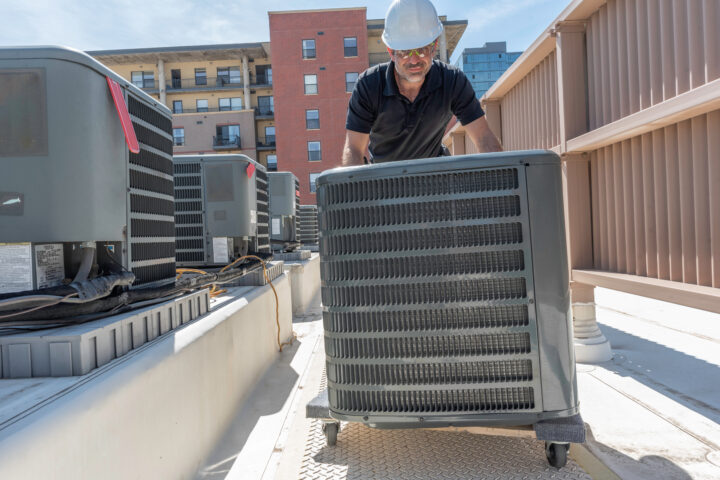Sleep apnea – a condition where patients pause breathing during sleep. Seeing your loved ones in such a condition can be really heartwrenching. And looking for solutions to help them sleep effortlessly is natural.
And that’s where people come across Continuous Positive Airway Pressure (CPAP) machines. They have become a game-changer for many suffering from sleep apnea. This machine helps keep the airways open, allowing individuals to breathe easier and sleep more soundly.
However, as with any medical equipment, there are potential health risks associated with the improper use and maintenance of CPAP machines. Here’s what you need to know about these risks and how to avoid them.
Health Risks Associated with Using a CPAP Machine
There are several reasons or conditions that can impact your health while using a CPAP machine. Here’s what you need to know:
1. Bacterial and Mold Growth
CPAP machines generate moisture, especially those with humidifiers. When not cleaned adequately, this moisture can create an environment conducive to bacterial and mold growth.
How to Fix It: Dedicate time to clean your machine regularly. Focus on parts exposed to moisture, like the mask, hose, and water chamber. Distilled water in the machine’s humidifier is a wise choice because it doesn’t carry the mineral content that tap water does, hence reducing mineral buildup, which can be a hotbed for microbes.
2. Skin Irritations and Allergies
The materials used in the manufacture of CPAP masks and straps, while designed to be hypoallergenic, can still sometimes cause reactions in sensitive individuals, leading to discomfort.
Ways to Fix It: It’s crucial to ensure the mask fits perfectly. Any constant rubbing can irritate the skin. Should irritation occur, considering alternative materials or mask styles is an option. Also, a regularly cleaned mask reduces potential allergens.
3. Seeking Legal Counsel
In some cases, defects or malfunctions in CPAP machines can cause or worsen the risks. If you believe your or your loved ones’ health has been compromised due to a faulty CPAP machine, it might be worthwhile to consult with a lawyer specializing in CPAP cases. They can provide insights into similar cases, guide you on potential actions to take, and help you navigate the complexities of medical equipment litigation.
Engaging with such specialized legal counsel can ensure you’re well-informed and protected, making the path to potential compensation clearer and more straightforward.
4. Eye Irritation
An ill-fitting mask can result in air leakage. This escaping air can dry or irritate the eyes, leading to discomfort or even infections over time.
How to Fix It: A well-adjusted mask can make all the difference. For those having repeated issues, a full-face mask might offer a better seal, preventing air from escaping toward the eyes.
5. Nose and Throat Dryness
Constant airflow, especially in non-humidified CPAP machines, can dry out the mucous membranes of the nose and throat.
Modern CPAP machines equipped with heated humidifiers help in adding moisture to the air, preventing dryness. If you’re not using one, a saline nasal spray can offer relief by moisturizing the nasal passages.
6. Ear and Sinus Pain
The air pressure in CPAP machines, while alleviating sleep apnea, can sometimes cause issues like ear and sinus pain due to pressure changes.
How to Fix It: Regularly checking that your machine’s pressure settings match your doctor’s prescription is essential. Any deviations or persistent discomfort should be discussed with your healthcare provider immediately.
7. Stomach Bloating and Discomfort
Known as aerophagia, some users unintentionally swallow the air from their CPAP machines. This air can lead to bloating and gastric discomfort.
How to Fix It: Refitting the mask, changing to a different style, or consulting with a technician to adjust the machine’s pressure can often resolve this. It’s also beneficial to sleep in a position where the head is slightly elevated.
8. Noise
Older CPAP machine models or those in need of maintenance can produce disruptive noises, potentially affecting both the user and their partner.
Investing in newer, quieter models can make a significant difference in sleep quality. Other strategies include placing the machine further from the bed, using sound-dampening materials around it, or considering earplugs for especially sensitive individuals.
In Conclusion
While CPAP machines are essential tools for treating sleep apnea, being aware of potential health risks and taking proactive steps can ensure you reap the benefits without the side effects. Always consult your healthcare provider if you experience persistent discomfort or new symptoms after starting CPAP therapy. Proper maintenance, regular cleaning, and timely check-ups can make your CPAP experience safe and effective.











